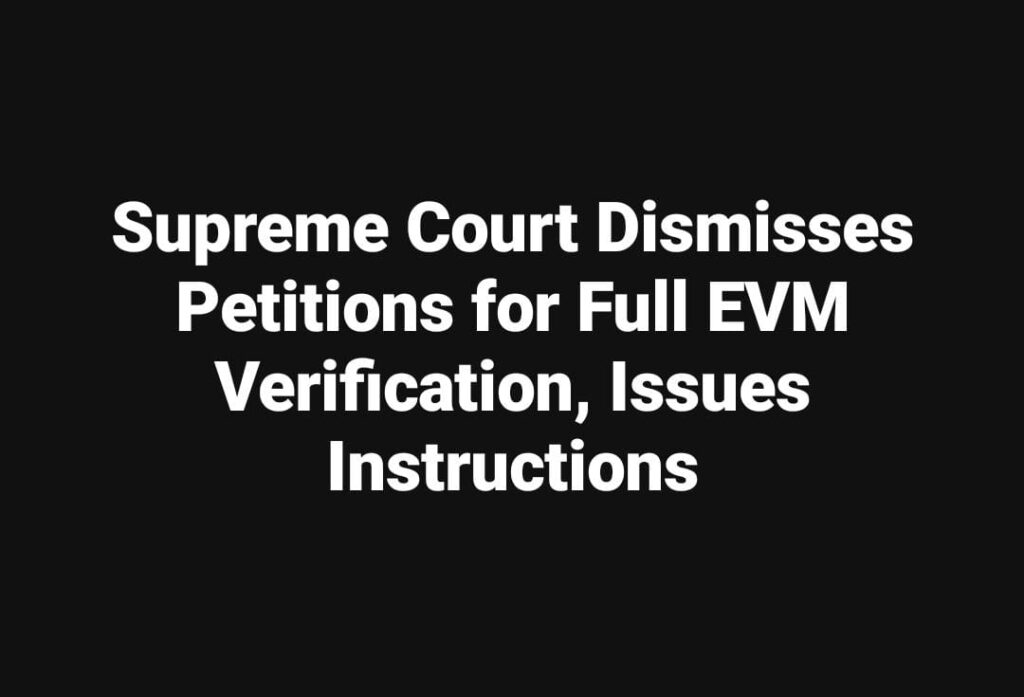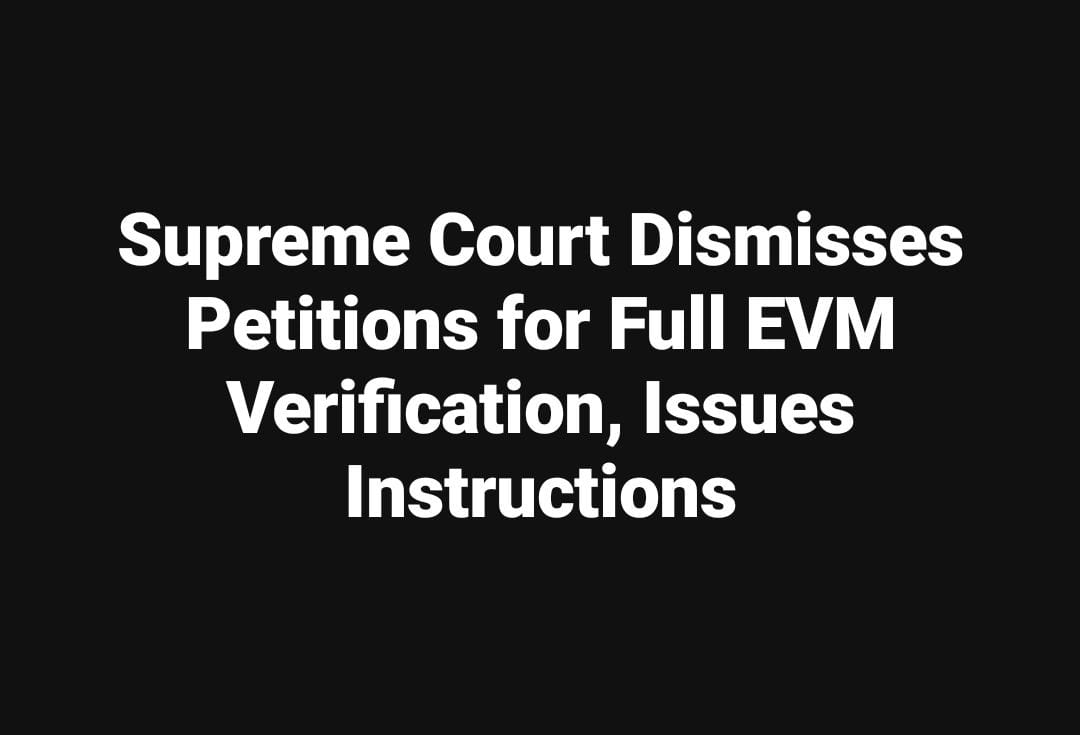WebDesk National
26 April
Sandeep Dhand Ludhiana
As the nation witnesses the second phase of Lok Sabha elections, the Supreme Court has ruled out petitions calling for a hundred percent verification of votes cast via Electronic Voting Machines (EVMs) with Voter Verifiable Paper Audit Trail (VVPAT). Justices Sanjiv Khanna and Dipankar Dutta delivered concurring judgments, dismissing all related petitions, including those advocating for a return to ballot paper elections.
The bench emphasized the importance of fostering trust and harmony among institutions in a democracy, cautioning against unwarranted doubts. However, the court issued two instructions in its ruling. Justice Khanna directed the Election Commission to seal and store units used for loading election symbols in strong rooms for 45 days after being loaded into EVMs.

Additionally, the court permitted engineers involved in EVM manufacturing to verify microcontrollers in EVMs upon appeal by second and third-place candidates after election results. Candidates can request microcontroller verification within seven days of result declaration, subject to a fee. If tampering is detected during verification, the fee will be refunded.
An EVM consists of three units – ballot unit, control unit, and VVPAT – all connected to microcontrollers, which can have their memory uploaded afresh. The court’s instructions aim to address concerns regarding EVM integrity while maintaining the efficiency of the electoral process.

